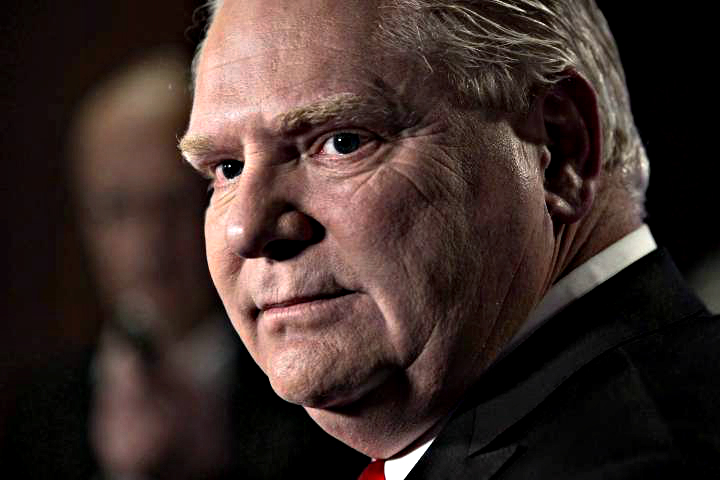Is the Ontario Election campaign an indicator that U.S. style politics could become the new norm in Canada?

On this week’s episode of Global News’ original podcast, This is Why, Niki Reitmayer examines this question with the help of Michael Adams, president of The Environics Institute and author of Could It Happen Here? Canada in the Age of Trump and Brexit.
After seeing the rise of populism during Donald Trump’s presidential campaign, Adams felt many Canadians would be concerned. Polls showed that the majority of Canadians, whether they were from liberal or conservative backgrounds, would have voted for Hillary Clinton.
Watching Trump calling Mexicans rapists and calling for a ban on Muslims coming into the United States showed that xenophobia was alive and well in the U.S., according to Adams, and left him wondering if this might be a wave that we would see internationally.
“There is a myth that whatever happens elsewhere, eventually happens in Canada,” Adams said.
WATCH: Ontario Election: Doug Ford arrives at his mother’s house after casting ballot

However, Canada’s history tells a different story, he explains.
Cities like Vancouver and Toronto have a large proportion of first and second generation residents. Adams argues that means that immigration is embraced amid Canada’s policies on multiculturalism and integration. The majority of these people are in favour of this, according to Adams, and that “we are seen as an example to the world.”
But what we are seeing in Ontario is different to the U.S. and Europe, he explains.

Get daily National news
The Ontario Progressive Conservatives are engaged in a classical anti-elitist and anti-government campaign set against 15 years of Liberal rule. This type of backlash is nothing out of the ordinary, he argues, and can be seen as a Canadian tradition.
WATCH: Ontario election leaves voters divided


WATCH: Ontario said ‘No Liberals’ months ago, Queen’s Park Bureau Chief Alan Carter explains
These backlashes towards the government occur when the government seems to be too orientated towards a certain group of people or particular provinces, he said.
However, where the Ontario election differs from the U.S. is that xenophobia is not tolerated by any of the parties, Adams said. While many have compared Doug Ford to Donald Trump, his platform has appealed to many immigrants, he added.
WATCH: Kathleen Wynne admits the Liberals won’t win the Ontario election

In that sense, Ford matches the definition of a populist politician to a tee, according to Adams.
“He represents a lot of people who have been left behind by the knowledge economy,” said Adams, even if Ford is not talking about dismantling healthcare and education.
But there’s also populism on the left, with Ontario’s New Democrats performing well in both Ontario and Western Ontario, something you wouldn’t see south of the border.
While the Conservatives campaigned on reducing the gas tax and putting beer and wine in corner stores, the NDP and the left campaigned on dental coverage and pharmacare. These are all populist platforms.
WATCH: Focus Ontario election special — Ghosts of campaigns past

“This is Canada’s version of populism rather than a footnote to what’s happening in the States,” Adams said.
So what about the future?
READ MORE: How Global News is covering the 2018 Ontario election
Populism will continue to grow all across Canada, particularly if we see a downturn in the economy or increased jobs losses, according to Adams.
“I don’t think we are going to get the kind of populism we are seeing in the United States and Europe, where the populism is going to be anti-minorities, anti-immigrant, anti-refugees,” Adams said.
“It would take a flood of refugees coming into our country illegally for us to have the kind of backlash we are seeing in the United States and Europe.
“Populism is actually not new to Canada, it’s in our DNA. Just as elitism is in our DNA, anti-elitism, the backlash against the elites and the elite accommodation, is part of our history.”











Comments
Want to discuss? Please read our Commenting Policy first.